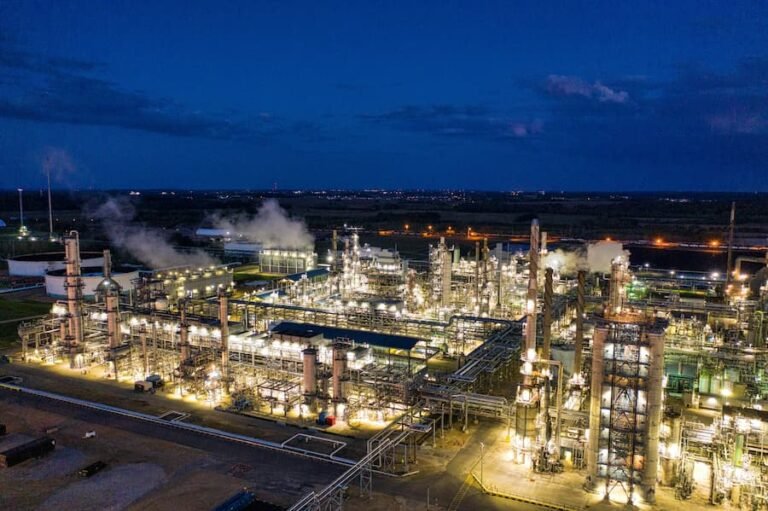The petrochemical industry bridges very complex intersections of supply chains, erratic global markets, and stringent regulatory frameworks. Technological advancement, when coupled with infrastructure amends, herald in a more efficient competitive environment for the companies. Key innovations that constitute landmark developments in operation and strategy have transformed the entire industry. From predictive maintenance to digital marketing, technology is redefining industry standards.
Automation and Process Optimisation
Automation has transformed production methods in petrochemicals through greater accuracy, safety, and reliability. Robotic machinery combined with artificial intelligence-based algorithms can make even the most elaborate processes easy by eliminating possible human error and reducing operational costs. Accessibility and the use of advanced software solutions enable real-time monitoring of chemical reactions while optimising the allocation of resources for consistent regulatory compliance. Automated workflows allow productivity increases while being concomitant with sustainability efforts that minimise waste and energy consumption. Intelligent automation increases the competitive edge of companies with the promise of much higher output combined with reduced operational risks.
Advanced Data Analytics for Decision Making
Data analytics is a key element to maximise decision-making in the petrochemical sector. The power of big data enables companies to search through vast amounts of operational data for appropriate insights. Historical information forms the basis for predictive models that companies use to project demand for products and production scheduling and to spot cost-saving opportunities. Real-time monitoring of operational data will also enhance the efficient allocation of raw material to production in the context of supply chain management. Decisions based on advanced analytics will offer companies a path to cost savings, optimising waste reduction, assuring profitability, and incorporating sustainability through operations.
Streamlined Equipment Maintenance
Reliability is key to operations of petrochemicals. A machine failure can lead to high downtimes and safety hazards. State-of-the-art monitoring systems provide real-time insights into performance that takes predictive maintenance a notch higher. Many companies invest in effective remote vibration monitoring solutions to detect early signs of mechanical wear and prevent unexpected breakdowns. Sensor data, artificial intelligence, and machine learning are means of this technology which provide optimisation of maintenance plans and saving unrehearsed shutdowns in operations. This shift from reactive repairs to data-driven strategies may reduce the number of operational disruptions.
Digital Marketing Transformation
The petrochemical marketing sphere has moved away from the traditional business-to-business definition. There are currently a few digital platforms which can be used to engage customers in branding and lead generation. Search engine optimisation, social media outreach, and targeted advertising campaigns are the ways to enhance visibility within a competitive market. Data analytics allow companies to craft well-tailored messages through which specific audiences can be targeted, thus increasing success rates in conversions and retention of customers. With the gradual movement and reliance towards digital channels, firms now face the challenge of developing content strategies that can showcase proficiency in an area while communicating trust among stakeholders.
Cybersecurity Challenges and Solutions
With the advent of interlinked industrial networks, the key concern appealing to the modern industrialist is cybersecurity. Cyberattacks on petrochemical plants can result in increased disruption of operations, theft of sensitive data, and an ensuing environmental hazard. In such cases, firms may deploy strong security measures that include intrusion detection systems, encrypted communication protocols, and multi-factor authentication. Training of workers emphasises the need for security awareness and vigilance and acts as a strengthening factor in programs. As industrial infrastructure converges more into a digital setting, forward-looking strategies for security will become increasingly needed for protecting important company assets and for maintaining regulatory compliance.
Conclusion
In conclusion, technology keeps reforming its way into the petrochemical industry by optimising its operations, enhancing its marketing, and strengthening its security. Organisations embracing predictive maintenance, digital marketing, automation, and cybersecurity can gain competitive advantage in a continuously evolving environment. With the use of advanced solutions, efficiency is improved and risks presented by the use of dated practices are reduced. With the fast change, agility will be key for the industrial giants to best leverage these emerging technologies.
Visit The Morning Times for more informative blogs.
